You’re not tied down to a single class in Avowed—instead, you can use any weapon combinations you like. Add to that three ability trees that you can freely level up in, and it’s possible to create a lot of unique builds. While that does give you a plenty of freedom, it also makes it tricky to figure out which are the best abilities and weapons to choose for your playstyle.
I’ve recently had a lengthy hands-on with a preview build of the game, and while I didn’t get to play long enough to explore late-game combinations, I did get enough experience to give you some good advice for the best builds in the early game to get you started.
Something important to note is that you can respec your abilities freely simply by going into the abilities menu and spending 100 gold. That means if a build isn’t working for you, you can easily switch things up. 100 gold isn’t an insignificant cost, though, especially early on when you’ll want to be loading up on gear and potions, so make sure you’re certain of where you want to reallocate your points before you hit the button.
If you just want to try stuff out and see how it feels, just make a save, respec, and then if you don’t like the results, reload your save and start again. That’ll save you from losing all your money to experimenting.
Example builds
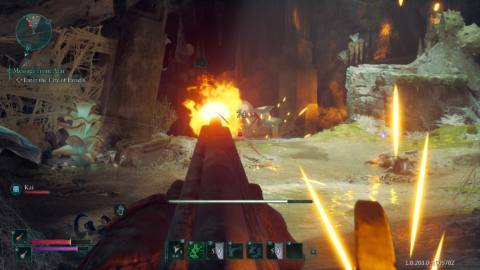
Stay There, You
- Abilities: Tanglefoot, Chill Blades, Evasive, Jolting Touch
- Weapons: Pistol and grimoire, arquebus
How it plays: Melee combat is undignified. When some uncouth oaf demands to fight you, simply root them in place with Tanglefoot or freeze them with Chill Blades, and then blast them with gunshots and lightning bolts until they get the message. Just be prepared to do a lot of dodging to keep distance.
Blademaster
- Abilities: Parry, Charge, Brawn, Armored Grace
- Weapons: Greatsword, pair of pistols
How it plays: You know why they call them greatswords? Because they’re great. They swing slowly, but not as slow as the other two-handed weapons, and they do serious damage. Who needs a shield when you can just get good at parrying instead? This build really lets you dominate the space. Up close, your wide, powerful swings will keep you on top. If things get dangerous, or a priority target is keeping their distance, a Charge will let you reposition. And for any other tricky situations, you’ve got a pair of pistols ready to unleash hell at mid range.
Dragon Warrior
- Abilities: Shield Bash, Parry, Fan of Flames, Armored Essence
- Weapons: Mace and shield, wand and grimoire
How it plays: Let your enemies come to you. As they approach, pepper them with wand bolts. Once they’re close enough, unleash your flamethrower hands. Then, switch to mace and shield for a safe defensive style. Stunning foes with Shield Bash and parries will let you get hits in with the slow but powerful mace, or if you’ve got the Essence to spare, create distance when your Fan of Flames cooldown is up for another blast.
Abilities
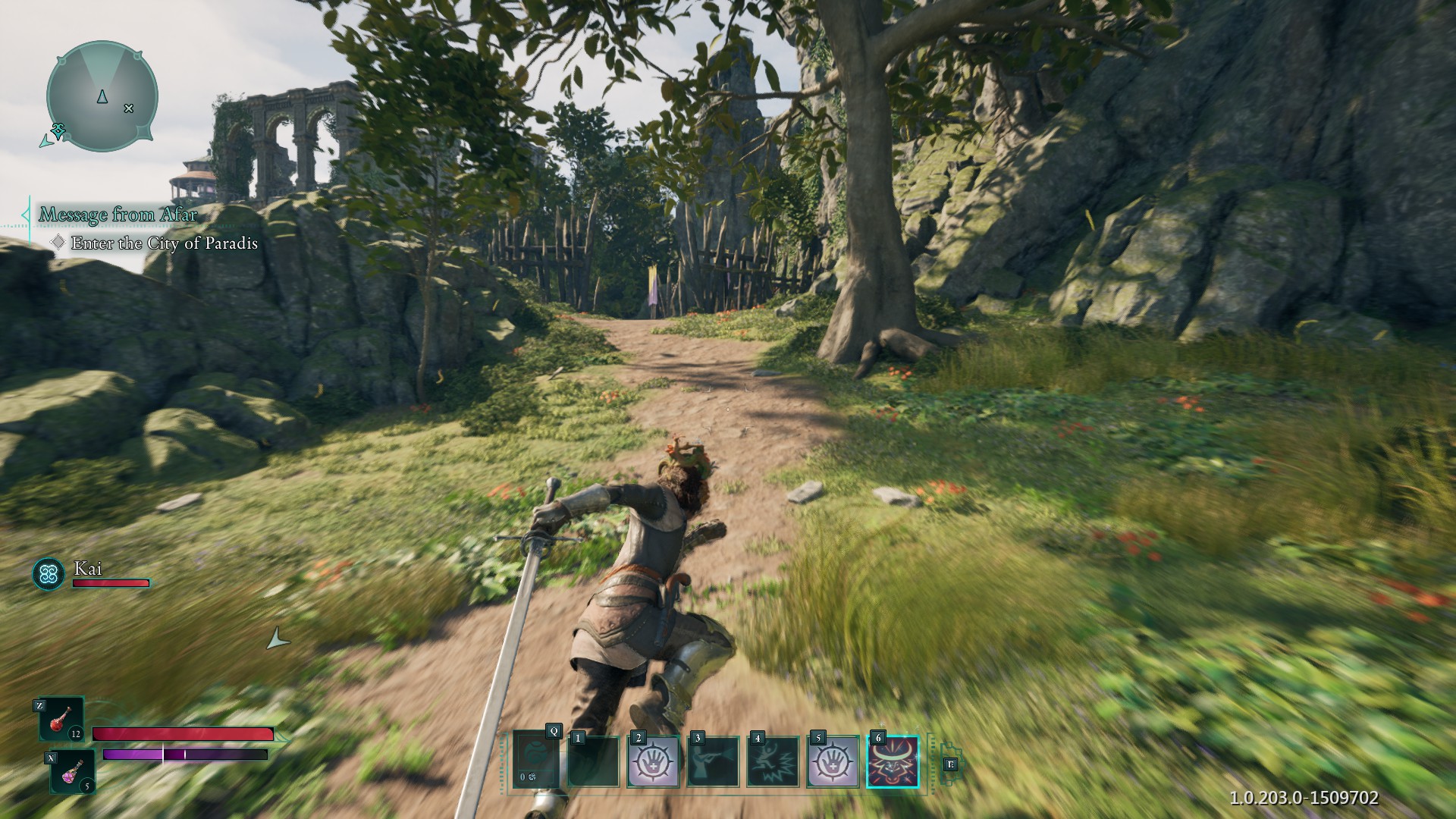
For advice on which weapons to choose for your build and why, check out our guide to the best weapons to use in Avowed.
Abilities are key to creating a build, providing the active and passive abilities that will shape your playstyle. Each time your character levels up, you can place a point in one of three ability trees: Fighter, Ranger, and Wizard. Each provides its own options and benefits, but you can freely mix and match between them to combine the most useful parts of each.
Fighter
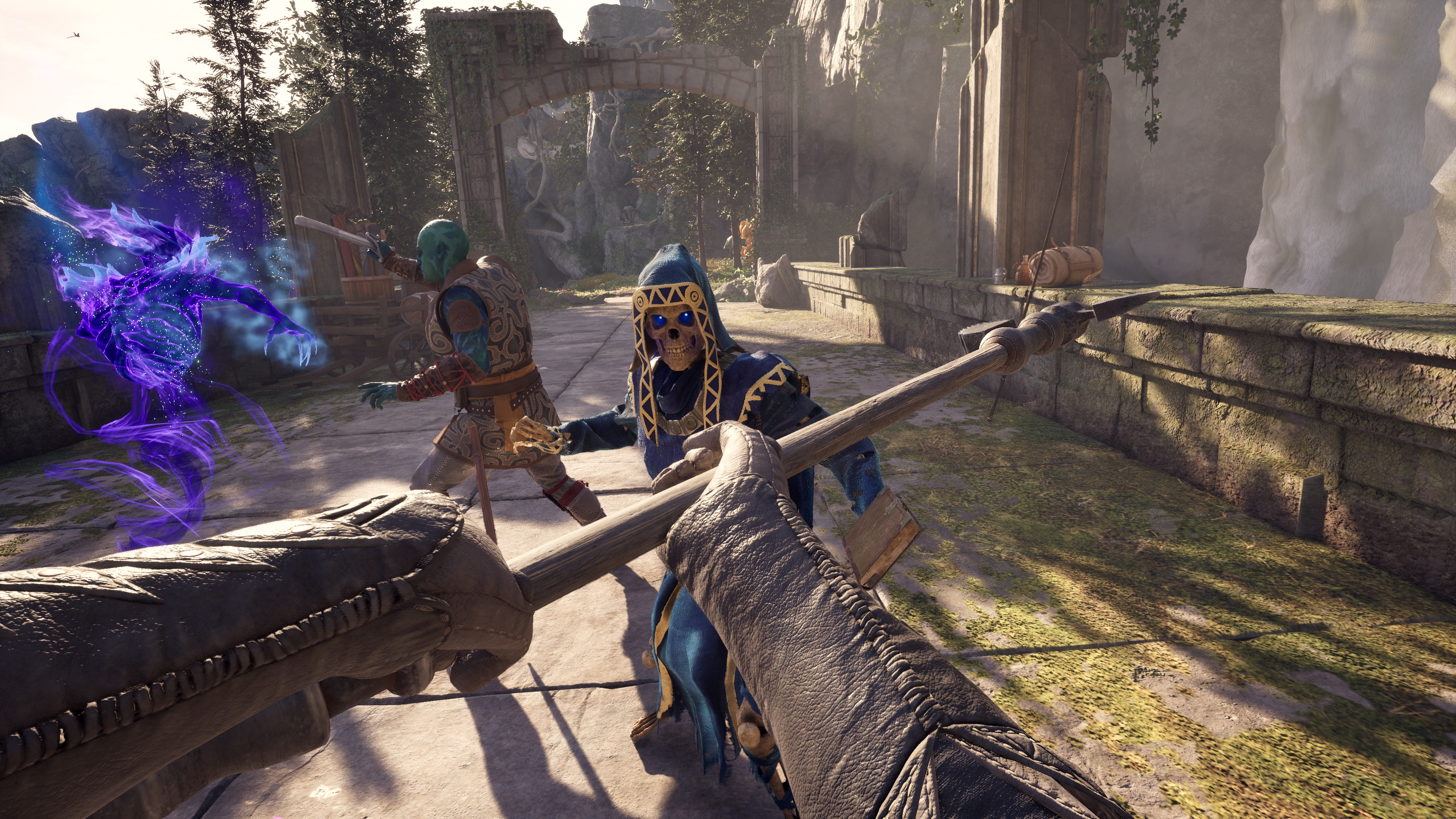
Perfect for getting up-close-and-personal, either with a two-handed weapon or a one-hander and shield, and increasing your survivability. If you’re enjoying the melee combat system, this is a great tree to start putting some points in early.
The first active ability in the Fighter tree is Charge, which allows you to sprint forward and smash through anything in your way. It’s a really useful one for any character using a melee weapon, because it allows you to quickly close the distance with ranged enemies, or make a beeline for spellcasters who often hide behind their allies casting healing magic. It also deals explosive damage—you can use that to break down weak walls while exploring without wasting precious grenades.
Shield Bash gives you a pretty effective new knockback attack that’s great for clearing yourself some space in the often hectic fights. It’s only usable while blocking with a shield, however, so it’s only worth getting if you see a shield as a core part of your weapon loadout going forward. It also costs a decent chunk of stamina (which is already depleted by blocking), so it helps a lot to pair it with Armored Grace, which reduces the stamina penalty of medium and heavy armour.
Brawn simply ups your damage with two-handed weapons. It’s a decent boost if you’re committed to using one of those, and pairs nicely with Toughness—that one buffs your health, mitigating some of the risk that comes with going without a shield. They’re both very straightforward passives, though—I think at low levels it’s more effective (and fun) to use your ability points to increase your options in combat rather than simply upping your base numbers.
Ranger
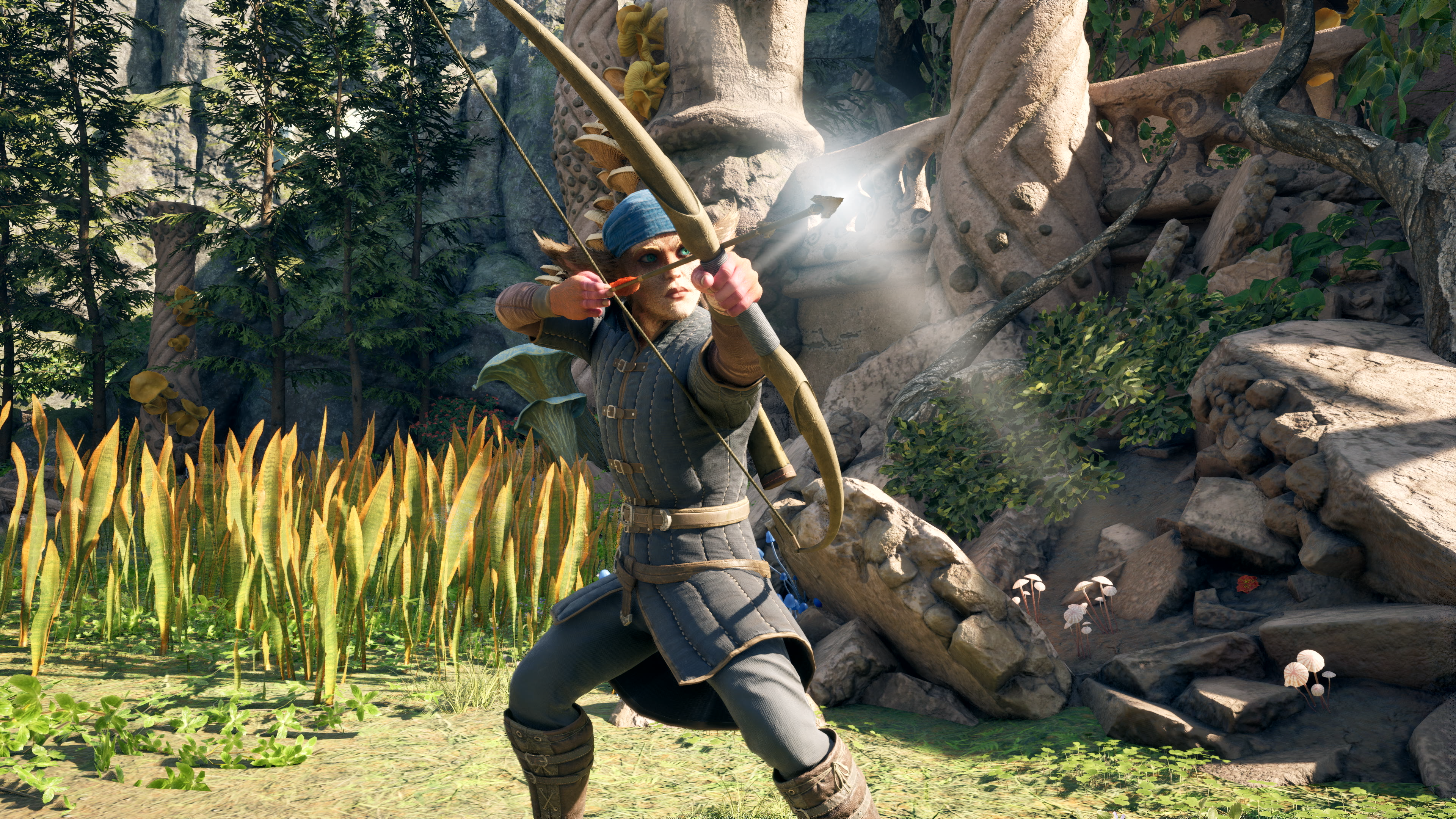
This tree offers a mix of both ranged-focused and melee-focused abilities. Put all your points here and you can be a bit of a sneaky, agile jack-of-all-trades—but it also works really well in combination with the other two trees.
A magic-focused character with lots of points in Wizard, for example, will benefit hugely early on from the Tanglefoot active ability, which allows you to root an enemy in place. That makes them a sitting duck for ranged spells, and keeps you safe from their melee attacks. Naturally it also combos well with ranged weapons and particularly guns—not only can you more easily get high-damage headshots if the target’s unable to move, but it also gives you more leeway with their long reload times.
Meanwhile, Parry feels like a must-have for a Fighter, or any melee build really. It basically opens up a full parry mechanic, where if you perfectly time a block the enemy is sent reeling and you can hit them with a quick counter-attack. Evasive is useful too, and Finesse simply buffs the damage of one-handed melee weapons, which is great for a shield build.
Marksmanship similarly just boosts your ranged weapons: bows and guns. Considering how much damage guns already do, 25-50% extra is nothing to sniff at. If you love a really devastating headshot, this’ll get you there.
Wizard
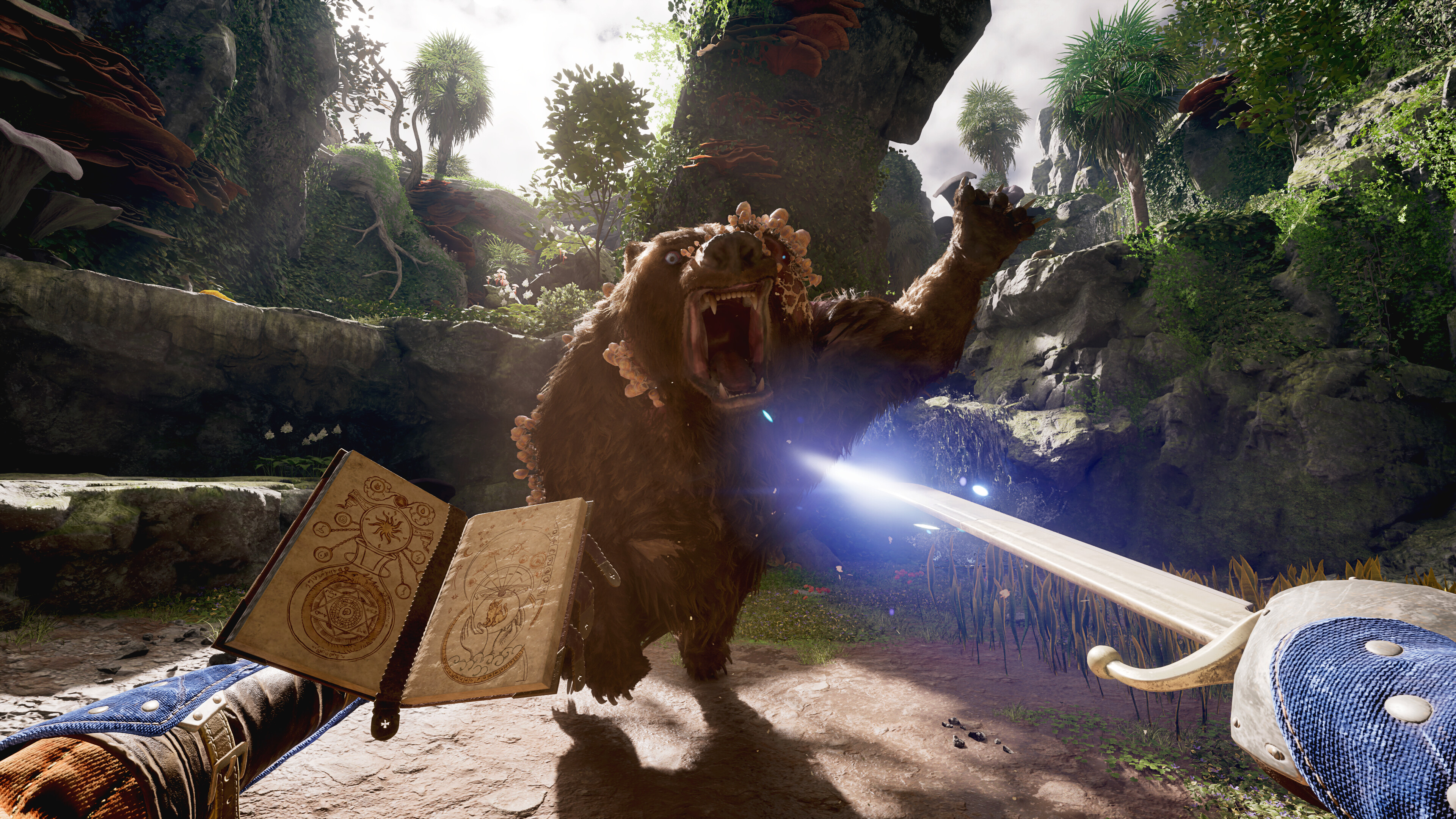
This is your magic-focused tree, obviously. As is often the case in RPGs, a build that relies mostly on this skill tree is a little more complex, but you certainly get plenty of fun toys to play with to reward your efforts.
Minor Missiles is a simple ranged spell. It’s nice to have one always available even when you don’t have a grimoire equipped, but I don’t think it’s vital, and actually even for a full Wizard build I think Tanglefoot from the Ranger tree is going to be more helpful. Ultimately if you just want magical ranged damage, you’ve already got that in your grimoire and wand.
Speaking of, I’m also a bit down on Wand Mastery. It’s a straight buff to wand damage, but if you’re aiming to deal most of your damage with spells, I don’t think it’s that relevant. And if you’re out of Essence for casting, you’re better off just switching to a gun or a melee weapon instead.
Armored Essence is rather more useful, reducing the Essence penalty of light and medium armour. In the early going, running out of juice is a real concern, so anything to help mitigate that is welcome.
The remaining first tier Wizard abilities are where things get a little more complex. Basically, you can individually buy and level up all the spells that you’re able to cast out of any grimoires you own. That allows you to cast them without the grimoire equipped, but also it means if you do cast them out of a grimoire, they count as being a level higher. This can be a bit confusing, because if you are using a grimoire, you have to make sure to remember to always cast out of that rather than from your hotbar to get maximum effect.
You’ll also need to focus in on the spells that you most like, because there’s too many to spread your points across all of them. If in doubt, I’d say Fan of Flames is a great one for close-range damage, while Chill Blades’ freezing effect makes it great for keeping enemies at long range (and if you’re doing a Wizard/Fighter build, the explosive damage from Charge will actually shatter a frozen foe for extra damage).






